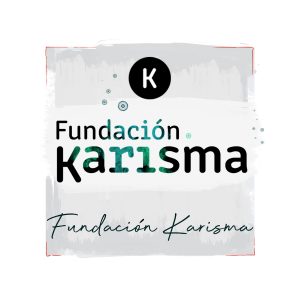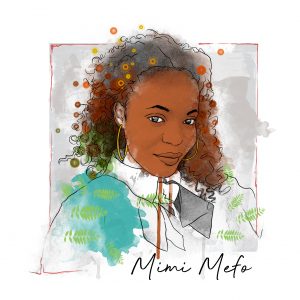#IndexAwards2019: Index announces Freedom of Expression Awards winners
[vc_row full_width=”stretch_row”][vc_column][vc_video link=”https://youtu.be/JeDl0BWXXOc”][/vc_column][/vc_row][vc_row][vc_column][vc_single_image image=”105881″ img_size=”full” add_caption=”yes” alignment=”center” css_animation=”fadeIn”][vc_column_text]A Kurdish artist imprisoned for her paintings of the destruction of a town in Turkey’s Kurdish region and a worldwide network monitoring threats and abuses against editorial cartoonists around the world are among the winners of the 2019 Index on Censorship Freedom of Expression Awards.
The winners, who were announced on Thursday evening at a gala ceremony in London, also include a Colombian civil society organisation that challenges online trolls by flagging abuse and an award-winning broadcast journalist from Cameroon who was arrested in November 2018 for her reporting.
Awards were presented in four categories: arts, campaigning, digital activism and journalism.
The winners are: Turkish artist Zehra Doğan (arts); Cartoonists Rights Network International (campaigning); Fundación Karisma, an organisation challenging the growing online harassment of women in Colombia (digital activism); and Mimi Mefo, one of less than a handful of journalists working without fear or favour in Cameroon’s climate of repression and self-censorship (journalism).
“These winners deserve global recognition for their amazing work,” said Index on Censorship CEO Jodie Ginsberg. “Like all those nominated, they brave massive personal and political hurdles simply so that others can express themselves freely.”
Drawn from more than 400 public nominations, the winners were presented with their awards at a ceremony at The Mayfair Hotel, London, hosted by comedian Nish Kumar.
Actors, writers and musicians were among those celebrating with the winners. The guest list included Tim Moloney QC, the deputy head of Doughty Street Chambers, writer, broadcaster and chair of Index on Censorship Trevor Philips, Malaysian cartoonist Zunar, historian and commentator Timothy Garton Ash and more.
Winners were presented with cartoons created by Egyptian cartoonist Doaa el-Adl.

Each of the award winners will become part of the fifth cohort of Freedom of Expression Awards fellows. They join last year’s winners — The Museum of Dissidence, a public art project and website celebrating dissent in Cuba (arts); The Egyptian Commission for Rights and Freedoms, one of the few human rights organisations still operating in a country which has waged an orchestrated campaign against independent civil society groups (campaigning); Habari RDC, a collective of more than 100 young Congolese bloggers and web activists, who use Facebook, Twitter and YouTube to give voice to the opinions of young people from all over the Democratic Republic of Congo (digital activism); and Wendy Funes, an investigative journalist from Honduras who regularly risks her life to report on what is happening in the country, an extremely harsh environment for reporters (journalism) — as part of a world-class network of campaigners, activists and artists sharing best practices on tackling censorship threats internationally.
Through the fellowship, Index works with the winners – both during an intensive week in London and the rest of the awarding year – to provide long-term, structured support. The goal is to help winners maximise their impact, broaden their support and ensure they can continue to excel at fighting free expression threats on the ground.
This year’s panel of judges included actor and filmmaker Khalid Abdalla, writer and social activist Nimco Ali, writer and academic Kate Devlin and Rappler CEO and executive editor Maria Ressa.
Awards judge Abdalla said: “The abyss we are facing all over the world requires acts of courage and intellect capable of changing the terms of how we think and respond to the challenges ahead. We have to celebrate those who inspire us and lead by example, not just because they have managed to break barriers in their own contexts, but because some part of what they do holds a key for us all.”
This is the 19th year of the Freedom of Expression Awards. Former winners include activist Malala Yousafzai, cartoonist Ali Ferzat, journalists Anna Politkovskaya and Fergal Keane and Bahrain Center for Human Rights.
Ziyad Marar, president of global publishing at Sage, said: “We are once again proud to sponsor tonight’s awards ceremony. We’re inspired by the achievements recognised tonight and remain in awe of Index’s work to champion, and bring to light, the work of these remarkable individuals. The protection and promotion of free speech is a belief deeply ingrained within our values at Sage and, as publisher of the magazine, we’re committed to supporting Index as they continue to confront issues of censorship globally. Congratulations to all those recognised tonight.”[/vc_column_text][/vc_column][/vc_row][vc_row][vc_column][vc_custom_heading text=”2019 Freedom of Expression Arts Award” font_container=”tag:h3|text_align:center” use_theme_fonts=”yes”][vc_single_image image=”105885″ img_size=”full” add_caption=”yes” alignment=”center”][vc_column_text]Zehra Doğan | Turkey
Released from prison on 24 February 2019, Zehra Doğan is a Kurdish painter and journalist who, during her imprisonment, was denied access to materials for her work. She painted with dyes made from crushed fruit and herbs, even blood, and used newspapers and milk cartons as canvases. When she realised her reports from Turkey’s Kurdish region were being ignored by mainstream media, Doğan began painting the destruction in the town of Nusaybin and sharing it on social media. For this she was arrested and imprisoned. During her imprisonment she refused to be silenced and continued to produce journalism and art. She collected and wrote stories about female political prisoners, reported on human rights abuses in prison, and painted despite the prison administration’s refusal to supply her with art materials.
Speech: “It is not only art that has had boundaries drawn around it in Turkey”
Profile: Artist Zehra Doğan refused to be silenced[/vc_column_text][/vc_column][/vc_row][vc_row][vc_column][vc_custom_heading text=”2019 Freedom of Expression Campaigning Award” font_container=”tag:h3|text_align:center” use_theme_fonts=”yes”][vc_single_image image=”105883″ img_size=”full” add_caption=”yes” alignment=”center”][vc_column_text]Cartoonists Rights Network International | United States / International
Cartoonists Rights Network International (CRNI) is a small organisation with a big impact: monitoring threats and abuses against editorial cartoonists worldwide. Marshalling an impressive worldwide network, CRNI helps to focus international attention on cases in which cartoonists are persecuted and put pressure on the persecutors. CRNI tracks censorship, fines, penalties and physical intimidation – including of family members, assault, imprisonment and even assassinations. Once a threat is detected, CRNI often partners with other human rights organisations to maximise the pressure and impact of a campaign to protect the cartoonist and confront those who seek to censor political cartoonists.
Profile: Cartoonists Rights Network International defends cartoonists worldwide[/vc_column_text][/vc_column][/vc_row][vc_row][vc_column][vc_custom_heading text=”2019 Freedom of Expression Digital Activism Award” font_container=”tag:h3|text_align:center” use_theme_fonts=”yes”][vc_single_image image=”106261″ img_size=”full” add_caption=”yes” alignment=”center”][vc_column_text]
Fundación Karisma, Colombia
Fundación Karisma is a civil society organisation that challenges online trolls by using witty online ‘stamps’ that flag up internet abuse. It is an initiative that uses humour to draw attention to a serious problem: the growing online harassment of women in Colombia and its chilling effect. The organisation offers a rare space to discuss many issues at the intersection of human rights and technology in the country and then tackles them through a mix of research, advocacy and digital tools. Karisma’s “Sharing is not a crime” campaign supports open access to knowledge against the backdrop of Colombia’s restrictive copyright legislation.
Profile: Colombia’s Fundación Karisma works to enhance digital rights
[/vc_column_text][/vc_column][/vc_row][vc_row][vc_column][vc_custom_heading text=”2019 Freedom of Expression Journalism Award” font_container=”tag:h3|text_align:center” use_theme_fonts=”yes”][vc_single_image image=”105884″ img_size=”full” add_caption=”yes” alignment=”center”][vc_column_text]Mimi Mefo | Cameroon
Mimi Mefo is one of less than a handful of journalists working without fear or favour in Cameroon’s climate of repression and self-censorship. An award-winning broadcast journalist at private media house Equinoxe TV and Radio, Mefo was arrested in November 2018 after she published reports that the military was behind the death of an American missionary in the country. Mefo reports on the escalating violence in the country’s western regions, a conflict that has become known as the “Anglophone Crisis” and is a leading voice in exposing the harassment of other Cameroonian journalists, calling publicly for the release of those jailed.
Speech: “This award is for those who stood and have continued to stand for press freedom”
Profile: Mimi Mefo works without fear or favour in Cameroon’s climate of repression and self-censorship[/vc_column_text][/vc_column][/vc_row][vc_row full_width=”stretch_row_content”][vc_column][vc_single_image image=”105882″ img_size=”full” add_caption=”yes” css_animation=”fadeIn”][/vc_column][/vc_row][vc_row full_width=”stretch_row_content_no_spaces”][vc_column][vc_column_text]
High resolution images are available on flickr
[/vc_column_text][vc_media_grid grid_id=”vc_gid:1554969857859-f1f04179-f2a6-10″ include=”105874,105875,105876,105878,105879,105880,105881,105882,105883,105884,105885,106094,106029,106030,106031,106032,106033,106034,106048,106049,106050,106051,106052,106053,106054,106055,106056,106057,106058,106059,106060,106063,106064,106065,106066,106067,106068,106069,106075,106077,106078,106079,106080,106090,106091,106092,106261″][/vc_column][/vc_row][vc_row][vc_column][vc_basic_grid post_type=”post” max_items=”12″ style=”load-more” items_per_page=”4″ element_width=”6″ grid_id=”vc_gid:1554969857860-55772dad-9263-1″ taxonomies=”8935, 26925″][/vc_column][/vc_row][vc_row full_width=”stretch_row_content_no_spaces” css=”.vc_custom_1554478654304{margin-top: 20px !important;padding-top: 20px !important;padding-bottom: 20px !important;}”][vc_column][vc_row_inner][vc_column_inner][vc_custom_heading text=”SPONSORS” font_container=”tag:h1|text_align:center” use_theme_fonts=”yes” css=”.vc_custom_1484567001197{margin-bottom: 30px !important;}”][vc_column_text]
Index is grateful to those who are supporting the 2019 Awards:
[/vc_column_text][/vc_column_inner][/vc_row_inner][vc_row_inner equal_height=”yes” el_class=”container container980″][vc_column_inner width=”1/2″ offset=”vc_col-xs-6″][vc_single_image image=”80918″ img_size=”full” alignment=”center” onclick=”custom_link” img_link_target=”_blank” link=”https://uk.sagepub.com/”][/vc_column_inner][vc_column_inner width=”1/2″ offset=”vc_col-xs-6″][vc_single_image image=”80921″ img_size=”full” alignment=”center” onclick=”custom_link” img_link_target=”_blank” link=”https://www.google.co.uk/about/”][/vc_column_inner][/vc_row_inner][vc_row_inner equal_height=”yes” el_class=”container container980″][vc_column_inner width=”1/3″ offset=”vc_col-xs-6″][vc_single_image image=”85983″ img_size=”full” alignment=”center” onclick=”custom_link” link=”https://www.privateinternetaccess.com/”][/vc_column_inner][vc_column_inner width=”1/3″ offset=”vc_col-xs-6″][vc_single_image image=”85977″ img_size=”full” alignment=”center” onclick=”custom_link” link=”http://www.edwardian.com/”][/vc_column_inner][vc_column_inner width=”1/3″ offset=”vc_col-xs-6″][vc_single_image image=”105358″ img_size=”234×234″ alignment=”center” onclick=”custom_link” link=”https://mainframe.com/”][/vc_column_inner][/vc_row_inner][vc_row_inner equal_height=”yes” el_class=”container container980″][vc_column_inner width=”1/3″ offset=”vc_col-xs-6″][vc_single_image image=”105536″ img_size=”full” alignment=”center” onclick=”custom_link” img_link_target=”_blank” link=”http://www.vodafone.com/content/index.html#”][/vc_column_inner][vc_column_inner width=”1/3″ offset=”vc_col-xs-6″][vc_single_image image=”105360″ img_size=”234×234″ alignment=”center” onclick=”custom_link” link=”https://www.francemediasmonde.com/”][/vc_column_inner][vc_column_inner width=”1/3″ offset=”vc_col-xs-6″][vc_single_image image=”105359″ img_size=”234×234″ alignment=”center” onclick=”custom_link” link=”https://www.dailymail.co.uk/home/index.html”][/vc_column_inner][/vc_row_inner][vc_row_inner equal_height=”yes” el_class=”container container980″][vc_column_inner width=”1/3″ offset=”vc_col-xs-6″][vc_single_image image=”80924″ img_size=”200×200″ alignment=”center” onclick=”custom_link” img_link_target=”_blank” link=”https://psiphon.ca/”][/vc_column_inner][vc_column_inner width=”1/3″ offset=”vc_col-xs-6″][vc_single_image image=”105361″ img_size=”200×200″ alignment=”center” onclick=”custom_link” link=”https://www.telegraph.co.uk/”][/vc_column_inner][vc_column_inner width=”1/3″ offset=”vc_col-xs-6″][vc_single_image image=”105363″ img_size=”200×200″ alignment=”center” onclick=”custom_link” link=”https://www.societyofeditors.org/”][/vc_column_inner][/vc_row_inner][vc_row_inner equal_height=”yes” el_class=”container container980″][vc_column_inner width=”1/3″ offset=”vc_col-xs-6″][vc_single_image image=”105365″ img_size=”200×200″ alignment=”center” onclick=”custom_link” link=”https://www.news.co.uk/”][/vc_column_inner][vc_column_inner width=”1/3″ offset=”vc_col-xs-6″][vc_single_image image=”106100″ img_size=”200×200″ alignment=”center” onclick=”custom_link” link=”https://www.mirror.co.uk/”][/vc_column_inner][vc_column_inner width=”1/3″ offset=”vc_col-xs-6″][/vc_column_inner][/vc_row_inner][vc_column_text]
If you are interested in sponsorship you can contact [email protected]
[/vc_column_text][/vc_column][/vc_row]


